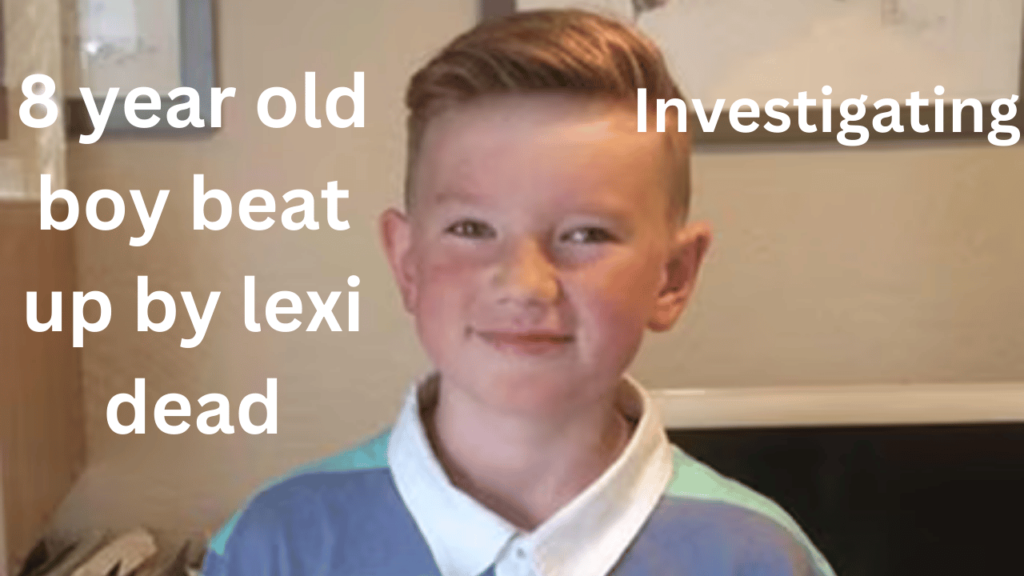In a disturbing event that has captured the attention of millions online, a video surfaced showing an 8 year old boy beat up by Lexi dead in a brutal and senseless attack. This article delves into the incident, exploring the ramifications of viral videos, the role of social media in justice, and community responses to such tragedies.
The Incident Unfolded
The video that went viral shows a teenage girl, identified by social media users as Lexi Bonner, assaulting an 8-year-old boy. The footage reveals the boy being dragged by his ankles and kicked, while the attacker and onlookers laugh. This heart-wrenching scene has led to a massive online backlash against the teenager, with the video rapidly spreading across platforms like Twitter and Snapchat.
Social Media’s Role in the Aftermath
Following the spread of the video, internet detectives and social media users took it upon themselves to identify and expose the attacker. Lexi Bonner’s supposed personal details were shared widely, leading to a severe public backlash. This phenomenon raises significant questions about privacy, the presumption of innocence, and the potential for misdirected vigilantism.
READ ALSO ABOUT: Domestic Violence Advocate Kim Wilson
Legal and Ethical Considerations
The 8 year old boy beat up by Lexi dead incident highlights the thin line between seeking justice and violating privacy. The sharing of Lexi’s alleged personal information and the subsequent threats pose serious ethical dilemmas. It underscores the need for responsible social media use and prompts a discussion on the legal implications of doxxing and online harassment.
Community and Supportive Actions
In the wake of the incident, the community response has been a silver lining. Crowdfunding campaigns and social media initiatives were launched to support the young victim, demonstrating a collective effort to bring some positivity to a grim situation. These actions reflect the potential for social media to foster solidarity and aid rather than just outrage.
Psychological Impact on Youth
Incidents like the 8 year old boy beat up by Lexi dead have profound impacts on the psychological well-being of all involved. For the victim, the physical and emotional scars can be long-lasting. For the perpetrator, being labeled and attacked online can have severe consequences on mental health. The incident serves as a stark reminder of the lasting effects of cyberbullying and physical violence on young minds.
The Societal Impact of Viral Violence
The 8 year old boy beat up by Lexi dead incident not only highlights individual trauma but also casts a spotlight on the societal impacts of viral violence. When a violent act is endlessly circulated online, it doesn’t just affect the individuals directly involved; the ripple effects touch various aspects of society. It can instill fear, provoke outrage, and sometimes even lead to copycat incidents. Public exposure to such violence can desensitize some while traumatizing others, altering perceptions of safety and human empathy.
Media Influence on Public Perception
The role of the media in shaping public perception cannot be understated. In cases like the 8 year old boy beat up by Lexi dead, media outlets play a crucial role in determining how information is presented and interpreted. The narrative set by the media can either calm the public or fan the flames of outrage, making responsible journalism critical. The ethics of reporting on such sensitive topics involve a fine balance between informing the public and preventing sensationalism that could harm those involved.
The Psychological Toll on Communities
Communities directly affected by incidents of viral violence often experience a collective psychological toll. Fear and anxiety can increase, especially among parents and children, impacting community cohesion and general mental health. Schools and local organizations might need to implement support systems and counseling to help those traumatized by such events, emphasizing the importance of community resilience in recovery efforts.
Strengthening Legal Frameworks
In response to incidents like 8 year old boy beat up by Lexi dead, there is often a call to strengthen legal frameworks to better address and prevent such occurrences. This includes not only the direct acts of violence but also the subsequent actions such as unauthorized sharing of personal information and harassment online. Legal systems may need to evolve to better regulate online behaviors and ensure that digital spaces do not become arenas for unchecked aggression.
Looking Forward: Preventive Measures
Moving forward, there is a clear need for preventive measures to reduce the likelihood of such incidents and their spread online. Educational programs that focus on digital literacy, empathy building, and conflict resolution could be key in preventing such violence. Schools, parents, and community leaders all have roles to play in teaching young people about the consequences of their actions, both offline and online.
FAQs About the Lexi Bonner Incident
- What happened in the Lexi Bonner incident?
- A video went viral showing a teenage girl, allegedly named Lexi Bonner, attacking an 8-year-old boy by dragging him and kicking him, which was recorded and spread on social media.
- How did the internet react to the incident?
- The internet reacted with outrage, leading to the widespread sharing of the alleged attacker’s personal details and calls for justice, which raises concerns about privacy and vigilante actions.
- What legal actions can be taken in such cases?
- Legal actions in such cases can include charges of assault and harassment, depending on local laws. The unauthorized sharing of personal information can also have legal repercussions.
- How can the community support the victim of such an attack?
- The community can support the victim through crowdfunding for medical and psychological care, offering emotional support, and promoting positive actions rather than retaliation.
- What are the long-term effects of such viral incidents on young individuals?
- The long-term effects can include psychological trauma, social isolation, and lasting fear. It also impacts the aggressor, who may face public backlash and legal consequences that can affect their future.

